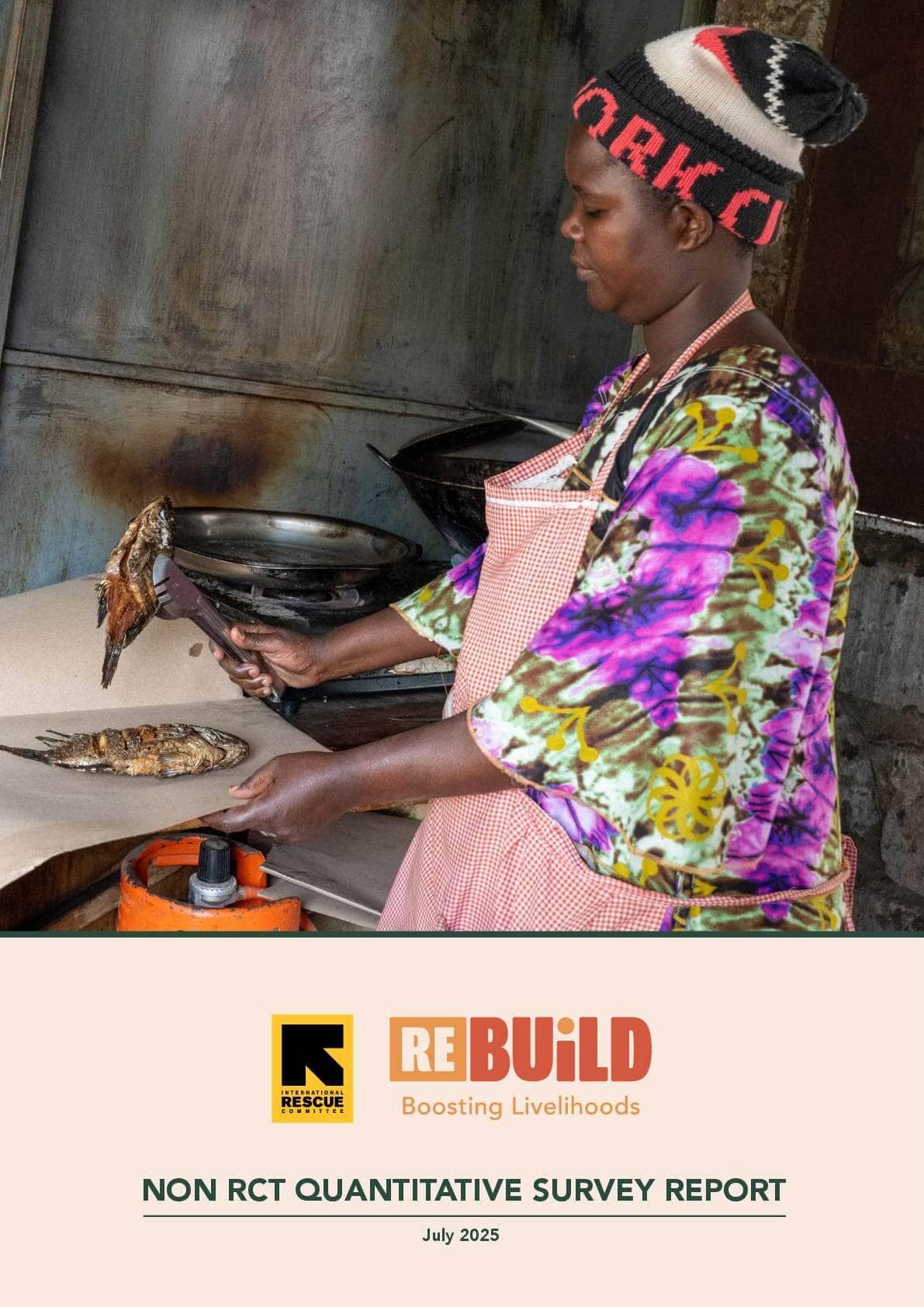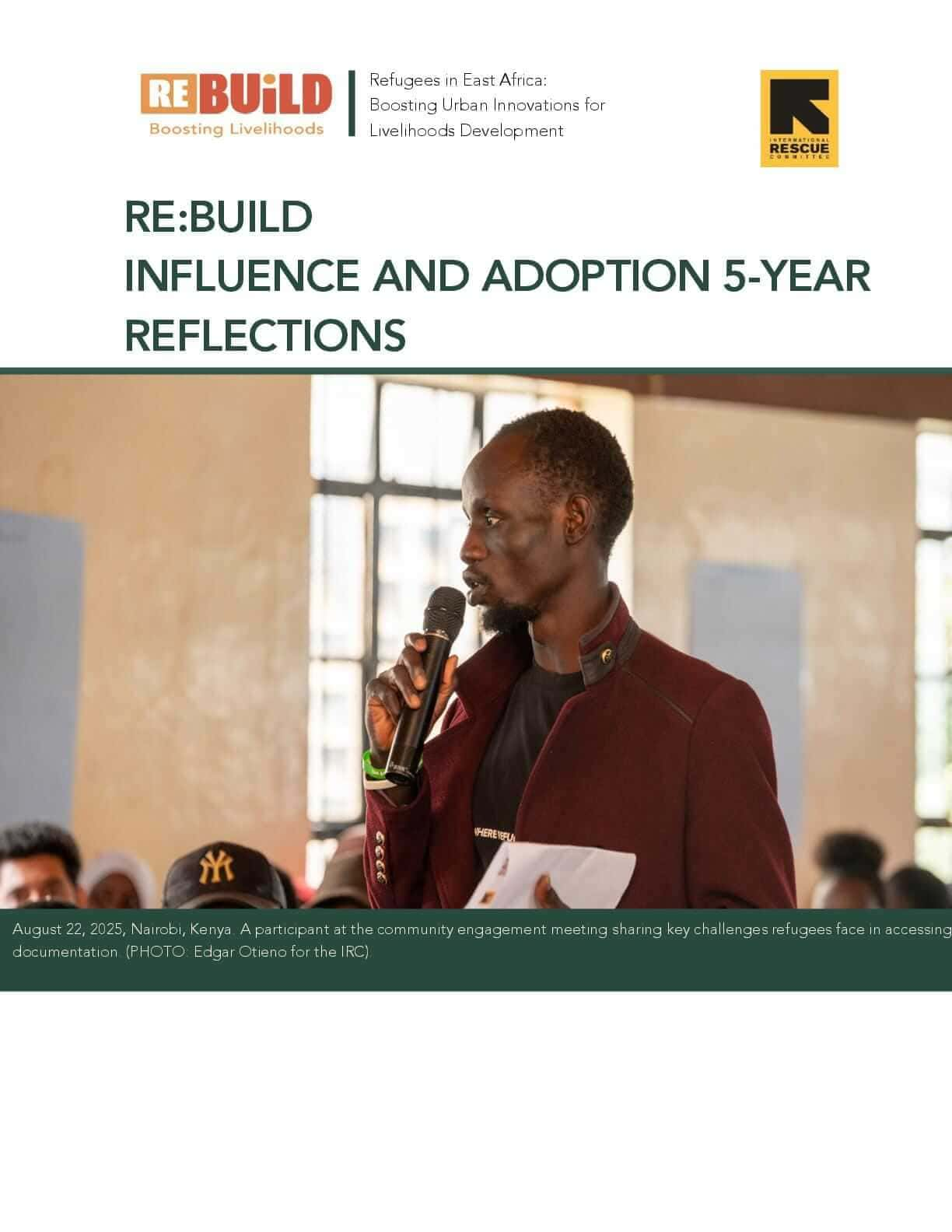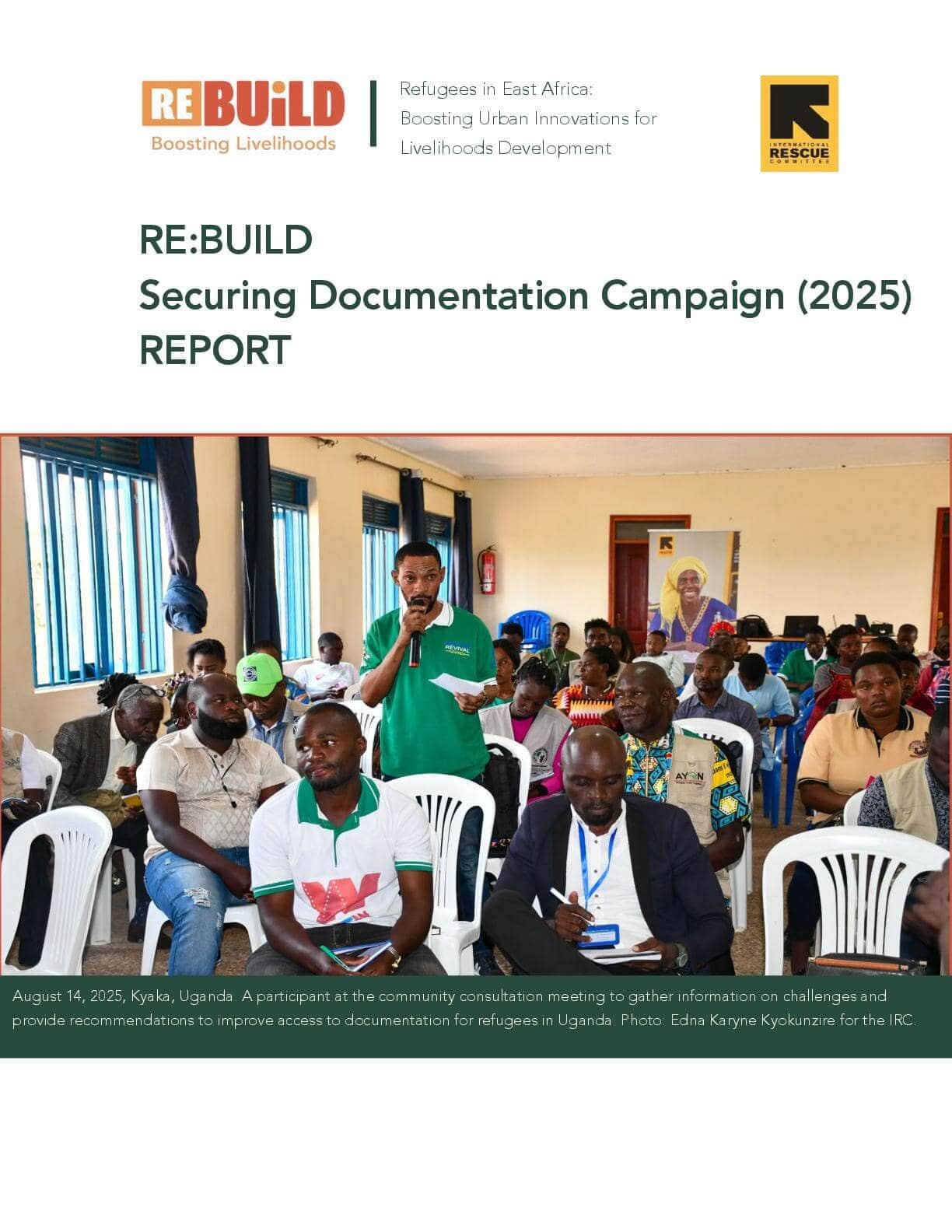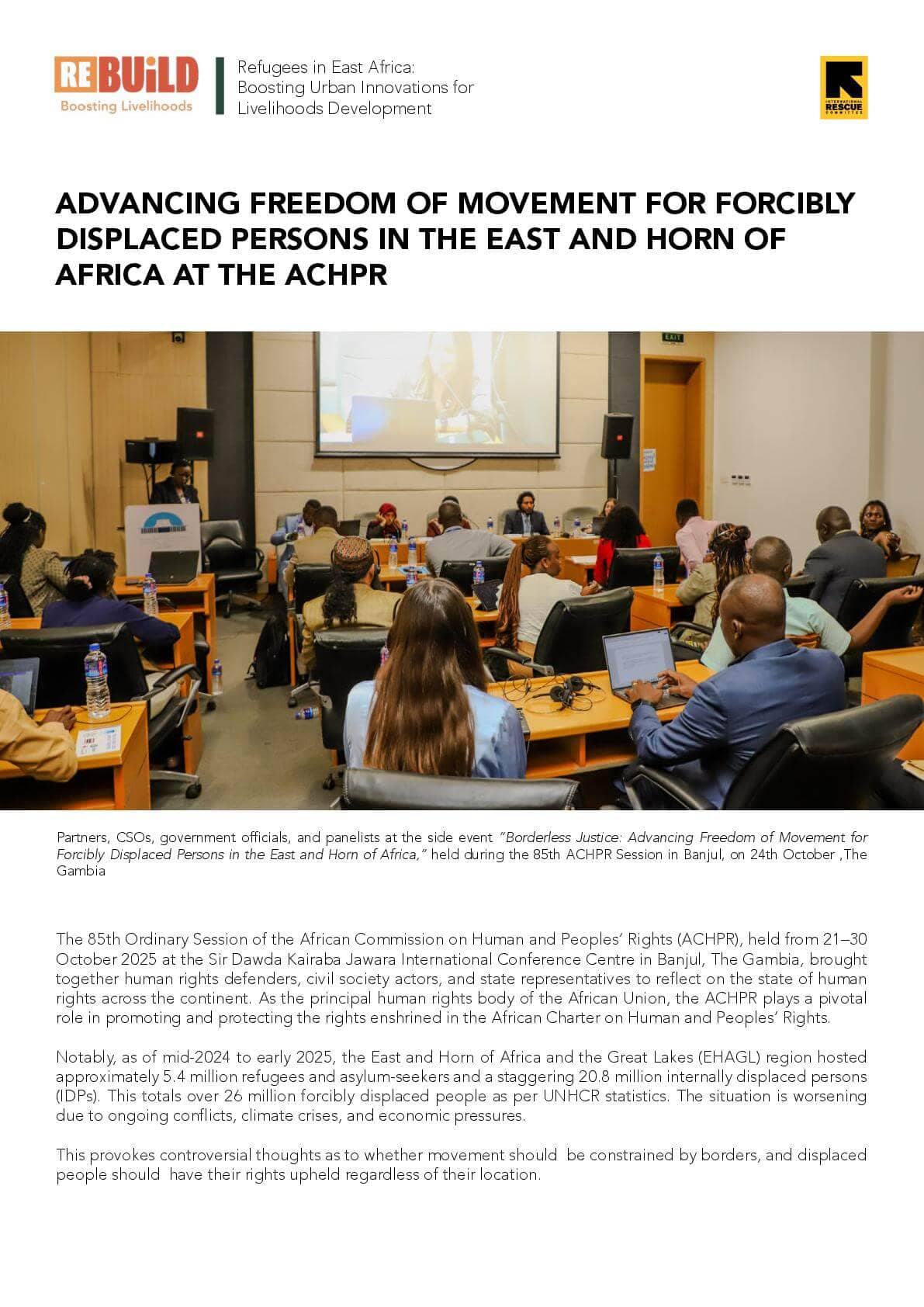Non RCT Quantitative Survey Report
Non RCT Quantitative Survey Report
This survey was undertaken to assess the impact of the livelihood interventions on clients . It draws on data collected in May and June 2025 from both longitudinal and cross-sectional samples respectively. Clients participating in the Randomized Controlled Trials (RCT) were excluded to preserve the integrity of the RCT. However, for business status, this report captures micro-enterprise clients (RCT wave 1) statistics as shared by the principal investigators.
By June 2025, the program had served over 20,738 clients across Nairobi and Kampala, surpassing its program target of 20,000. Out of which 8,301 received non RCT services and 12,437 were under RCTs. The survey focused on Non RCT clients surveying 2,799 (1,568 in Kenya and 1,231 in Uganda) in both the longitudinal and cross-sectional surveys. 88% of respondents (2,451 clients;1,372 in Kenya and 1,079 in Uganda) were actively involved in economic activities. Of these, 52% were self-employed, 22% were in full-time salaried employment, 20% were engaged in casual labor and 6% in seasonal labor and as paid volunteers. The most common employment sectors include textiles and clothing, food and beverage services (hotels and restaurants), beauty and cosmetics, and retail trade.



